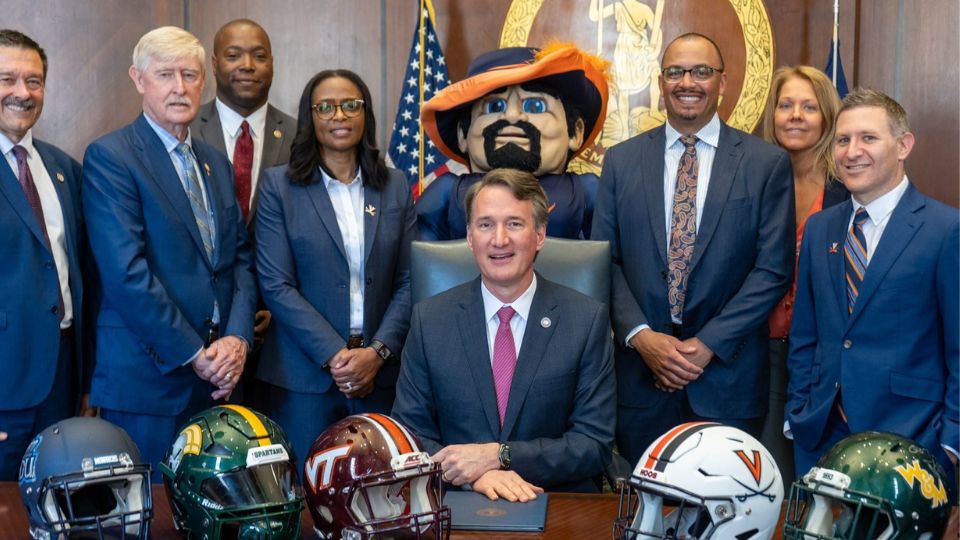Virginia passed a law during the General Assembly session that makes it easier for universities to support student-athletes in using their name, image, and likeness for opportunities. The law also prevents the NCAA from taking action against these opportunities.
Some people believe that Virginia is the most progressive state in the country when it comes to giving college student-athletes rights to their name, image, and likeness (NIL). The Virginia Attorney General and the Tennessee Attorney General worked together to successfully obtain a preliminary injunction in federal court. This injunction prevents the enforcement of rules that prohibit college sports collectives from using NIL (Name, Image, and Likeness) to attract athletes to their universities.
A collective is a group that supports a particular university and helps its student-athletes by paying them for their name, image, and likeness (NIL) rights. They also help connect these athletes with opportunities to earn money through partnerships with businesses. What will this mean for the business of college sports in Virginia, which has a significant impact on the Virginia economy?
The new law in Virginia is unclear in certain areas. For instance, in certain cases, the rules don’t explicitly say that a Virginia university can do something. Instead, they simply prevent the NCAA from punishing the university for doing that thing. This suggests that the activity is allowed by law. Here’s how I understand the important parts:
- Universities can now directly pay student-athletes for using their Name, Image, and Likeness (NIL).
- It also lets universities, their athletic foundations, and groups help student-athletes find and take advantage of NIL opportunities.
- Each university has the power to establish NIL policies for its student-athletes.
- Schools are not allowed to use student fees, which are charges in addition to tuition, to fund NIL activities.
- Universities are allowed to offer benefits to donors who contribute to NIL funds, like better seats and special access.
- The statute is important because it prevents the NCAA, even though it doesn’t specifically mention them, from punishing universities or student-athletes for participating in the activities allowed by the NIL.
- Student-athletes must inform their universities about any NIL (Name, Image, Likeness) agreements they have. A university can prevent a NIL deal if it goes against its advertising or sponsorship agreements or institutional policies.
- The policy prevents student-athletes from making money through endorsements or promotions related to certain controversial products and services. These include alcohol, adult entertainment, marijuana, illegal drugs, steroids, tobacco, vaping, weapons, and gambling, including casinos and sports betting.
- Student-athletes are not allowed to use the university’s logos, apparel, and facilities for NIL activities unless the university gives permission.
- This means that participating in these approved NIL activities does not make a student-athlete an employee of the university. Whether student-athletes are considered employees is a controversial issue that is primarily governed by federal law.
Also Read: FBI Statistics Finds the Most Dangerous Cities in New York
Will the new NIL rights for college athletes give Virginia an advantage in attracting top athletes to help Virginia’s universities win sports games? Some other states have also recently passed similar laws. Virginia’s law may be different because it seems to allow Virginia universities to pay nothing to student-athletes. However, this is just a small benefit compared to other states. The new laws in other leading states allow collectives to not pay anything to student-athletes.
According to the current NCAA rules, universities are not allowed to pay student-athletes or arrange deals for them to receive NIL (name, image, likeness) compensation. Collectives should function separately from universities. Therefore, states like Virginia are going against NCAA rules.



Leave a Reply